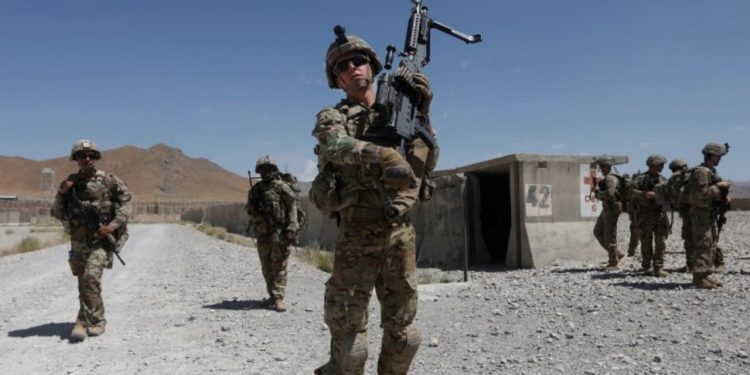Bimal Prasad Mohapatra
Now, US forces are leaving Afghanistan by the 20th anniversary of Taliban facilitated al-Qaeda terror attack on US in 2001. And this is about to happen without accomplishing the forces’ much tom-tommed assignment of releasing the landlocked nation from the clutches of dreaded Islamic terror.
It isn’t that during their long two decades of presence in the civil war ravaged country, no attempt has been made to bring in normalcy. They located and killed al-Qaeda’s head Osama bin Laden in Pakistan’s Abbottabad, and revamped Afghanistan security set up and helped set up democratic governance mechanism apart from building development infrastructure.
Western forces have tried their best to remove and destroy the terror elements and terror infrastructure, which caused deaths to around 2500 of their soldiers and cost more than $800 billion, but failed to bring the much-shouted normalcy mostly due to (i) uncompromising commitment of Sunni Islamic terrorists to Islamic religious doctrines, (ii) land-locked uneven terrain which greatly supports Islamic guerrilla warfare, and (iii) continued political, diplomatic, financial, logistic, intelligence and military support to Taliban from vested interest Pakistan.
As a last ditch effort, the Trump Administration had initiated negotiation with Taliban ignoring Afghanistan’s elected government’s objection. Even during last months of his tenure, Trump had pressurised an unwilling Afghan government to free hundreds of dreaded terrorists under its captivity, though the terror attacks had not been eased, in order to motivate Taliban.
In the meanwhile, India invested approximately $3 billion building the Afghan Republic’s Parliament, economic and social infrastructure such as dams, hospitals, roads, schools, facilitating livelihood projects, and even sponsoring the nation’s cricket teams, training the country’s sports enthusiasts and organising their matches back in India ignoring taunt from Trump who had gone to the extent of saying, “You know what that is? That’s like five hours of what we spend. And we’re supposed to say, ‘Oh, thank you for the library.’ I don’t know who’s using it in Afghanistan.” It isn’t that India’s achievements were possible without security. But this author thinks: had the Western powers followed India’s policies along with security provisioning to fight terrorists and their support bases, the situation might have improved if not fully normal by now.
Now, the US forces withdrawal will create a vacuum only to be filled by Taliban supported by the latter’s mentor — Pakistan Army – as seen in mid 1990s within a few years of the Red Army’s departure from its one and a half decades’ occupation that founded the nation’s civil war which is yet to cool down despite more than four decades of rampage.
But, unlike 1990s, Communist China is about to join Taliban and Pakistan. Lately, China is found much interested in the crisis as it looks for a land transit to Iran on the western border of Afghanistan where it has under its Belt and Road Initiative an investment plan of $400 billion. But, will Islamist Taliban and highly Islamised Pakistan population appreciate China having control over infrastructure in Afghanistan and Pakistan. It is a known fact that the influential Islamists in Pakistan oppose Chinese projects in their country accusing China of de-radicalisation of Muslims in the Xinjiang province. For the time being, Taliban and its sympathisers in Pakistan may join hands with China and Pakistan to get rid of Western forces from the region. After that, the fight among them may not be ruled out resulting in expansion of the civil war not only in Afghanistan but also in additional geography in Pakistan. Going by the Soviet Union occupation history in Afghanistan, it’s difficult to predict Chinese success in fighting against Islamists in the rugged territory of Afghanistan and in Western provinces of Pakistan through which much of Chinese BRI project will pass. And, again, will the US and its allies, which entered the region in early 1980s to stop Soviet Russia’s march towards strategically significant Indian Ocean via Afghanistan, remain silent when Communist China marches to the same region via Afghanistan, Pakistan and Iran?
In view of this, how long peace and tranquility of the region will continue to remain elusive nobody can say now for sure. Therefore, it’s suggested to solve Afghanistan crisis why not try India shown path halting the Western troops’ withdrawal for a few more years?
The writer is a Honorary Research Fellow in DRaS.






































